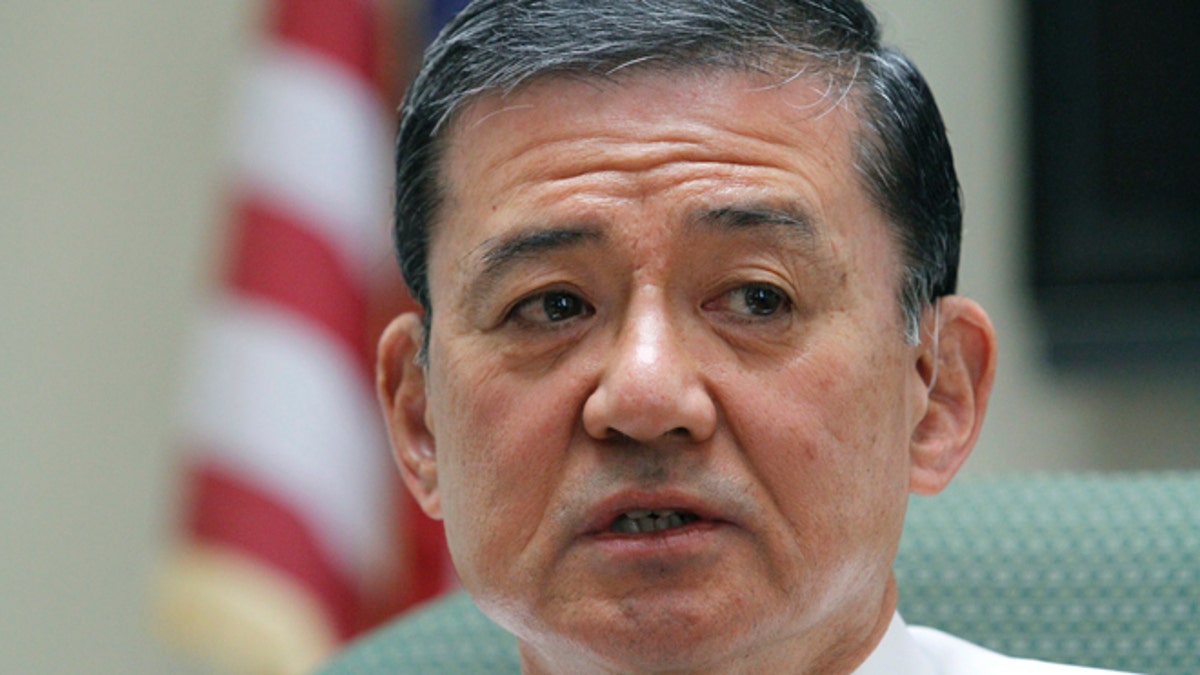
In this April 12, 2012 file photo, Veterans Affairs Secretary Eric Shinseki makes remarks during a visit to a medical center in Coatesville, Pa. (Reuters)
Secretary of Veterans Affairs Eric Shinseki issued a dire warning Wednesday about the impact of a prolonged budget impasse, saying millions would see their benefit checks halted if the stalemate is not resolved in the coming weeks.
Shinseki said more than 5.18 million checks worth $6.25 billion could soon be held up.
"I will not be able to pay all these beneficiaries (without a budget)," Shinseki testified before the House Veterans Affairs Committee.
He said that if something is not done by Nov. 1, "I will not be sending checks out."
Though some Republicans have accused the Obama administration of making the impact of the partial shutdown worse than it needs to be, Shinseki claimed his hands are tied.
"What is best for veterans and for all of us right now is a budget for the entire federal government," he said.
The Department of Veterans Affairs is one of the most highly staffed divisions of the government during the partial shutdown, with only a small percentage of workers furloughed. But Shinseki claimed the department's money will nevertheless run dry for a variety of benefit payments -- and explained there will be additional furloughs down the road.
A detailed breakdown in his written statement to Congress said that if the stalemate lasts into late October, disability compensation payments to more than 3.8 million veterans will stop in November, including those with "severe disabilities."
He said payments would also stop for more than 364,000 survivors getting special benefits, and pension payments would stop for more than 500,000 veterans and spouses or dependents. GI bill programs would stop for more than 500,000 people.
He also warned nearly 5,600 veterans per day would not receive a decision on disability claims, in turn increasing the backlog he claims the department has been trying to address.
The House last week passed a bill to fund the VA, but the Senate so far has not taken it up. Senate Democratic leaders argue that Congress should not support a "piecemeal" approach, and should instead agree on a bill to fund the entire government.
Rep. Jeff Miller, R-Fla., chairman of the House Veterans Affairs Committee, claimed Wednesday that lawmakers have had a hard time getting straight answers out of the VA.
"It's been very difficult to get the information out of your office," he told Shinseki.
Though Shinseki issued dire warnings about payments being cut off, he said VA health services are for the most part funded, since they do not hinge on appropriations from Congress.




